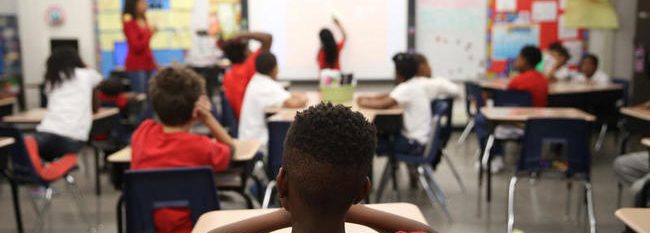Looking back: A Reflection
Growing up as a young biracial child in a predominately white affluent neighborhood suburb, my perception of the educational experience was skewed. Aside from the physical differences separating me from my peers I never felt that my educational experience lagged or was negatively impacted. I never worried about standardized testing inequalities or being treated differently as the result of my race or family’s income. In my small child brain, I believed that my educational experience was the norm for children in New England and that it was not unusual that I was only one of two African-American students in my grade. That is, I was blinded by a false reality of the societal world until I was immersed into a blended world that fused together urban Boston students and suburban Westwood students. The program was the Metropolitan Council for Educational Opportunity (METCO) program and took place the first year of middle school. I was always fascinated in learning about the lives of my friends who were METCO students prior to coming to Westwood High School. What were their schools like? Their neighborhoods?
I have since learned that the present day urban education system houses racial, economic, and political inequalities that have accumulated over time; segregation and financial discrepancies between urban and suburban public schools are the result of these inequalities. These discrepancies have led to achievement gaps, funding gaps, and physical and dietary differences between urban public schools and suburban public schools. When choosing my topic I knew I wanted to focus on inequalities that disproportionately plague our urban public schools everyday.
During my time in the public education system, I was never exposed to the negative consequences of standardized testing and how it impacts students and public school districts. Through this project I read articles and papers that articulated the negative influence standardized testing had and the pressures it put on teachers and students. Aside from standardized testing, this project introduced me inequalities urban schools and students face such as racial segregation, financial scarcities, and achievement gaps.
Grassroots organizations are empowering; however, it wasn’t until I took this class that I became aware of the impact grassroots had on urban education and urban communities. It wasn’t until this class that I even knew what a grassroots organization truly was or just how hard they are to identify. Not only do grassroots help those outside of the organization but they also directly impact the people who are active members. Concerned parents join grassroots to advocate for their children and fight injustices and inequalities that public school kids face everyday. Teachers who witness these discrepancies among their children are also inspired to join grassroots coalitions. There is a sense of community that tags along with grassroots organizations. Since they are made up of local people from within the community, the community outreach is strong. Prior to this class I would have imagined that grassroots only consisted of a select few people who might or might not have been a part of the community, and I would have imagined that they only addressed issues pertaining to their well being on top of everything else. Through having to research and find grassroots organizations, I’ve learned that many educational grassroots strive for the best quality education that can be provided for urban public schools.
By learning about organizing and education before diving into the grassroots search, I learned that there is a difference between what it means to be an organizer and educator and that although they have different objectives, organizers must become educators in order to successfully organize a group of people. While reading over the websites of some of the grassroots I found, I noticed their language was that of an organizer: they had a goal(s) and they let the reader know what it was; however, at the same time many spoke as educators claiming that part of their mission was to educate community members and parents.
As I sit here reflecting on my experience throughout this project, I can’t help but let my my mind wander to what else I could have discovered or added to this project had it been bigger and longer. Learning about some of the challenges urban school districts like Chicago Public Schools face makes me want to look deeper into the outcome of these students who have to attend underprivileged schools and who are granted less educational opportunities. I have frequently heard talk amongst current classmates regarding the school to prison pipeline, and my interest was peaked. For future research I would want to examine and then compare and contrast how school inequalities lead to the school to prison pipeline. Does standardized testing play a role in this educational, downward spiral?
Experiences are interesting. This project overall made me appreciate my past and current educational experiences while simultaneously educating me on the challenges and experiences some urban public school students consistently deal with everyday.
